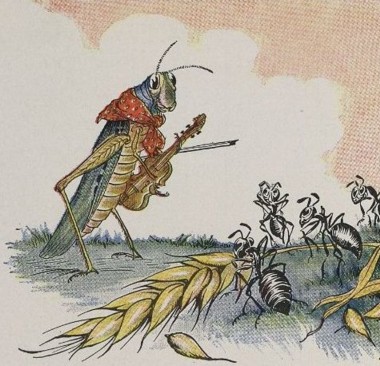PART A_1
Let’s learn vocabulary. Listen and repeat the words and the sentences with your tutor.
PART A_2
| 1. grain | /greyn/ |
| -a small, hard seed, especially the seed of a food plant such as wheat, corn, rye, oats, rice, or millet. | |
| The birds ate up all the grains in the feeder. | |
| 2. store | /stawr/ |
| -to supply or stock with something, as for future use. | |
| They store their old stuff in the attic. | |
| 3. starve | /stahrv/ |
| -to be in the process of perishing or suffering severely from hunger. | |
| He fed a starving stray dog and later adopted it. | |
| 4. shrug | /shruhg/ |
| -to raise and contract (the shoulders), expressing indifference, disdain, etc. | |
| He just shrugged when they asked about his plans for the holidays. | |
| 5. disgust | /dis-guhst/ |
| -a strong distaste | |
| She could not hide her disgust after seeing a fly in her soup. |
PART B_1
Let’s read the story. Please read them aloud, and I will check your pronunciation and intonation.
PART B_2
THE ANTS AND THE GRASSHOPPER

One bright day in late autumn a family of Ants were bustling about in the warm sunshine, drying out the grain they had stored up during the summer, when a starving Grasshopper, his fiddle under his arm, came up and humbly begged for a bite to eat.
“What!” cried the Ants in surprise, “haven’t you stored anything away for the winter? What in the world were you doing all last summer?”
“I didn’t have time to store up any food,” whined the Grasshopper; “I was so busy making music that before I knew it the summer was gone.”
The Ants shrugged their shoulders in disgust.
“Making music, were you?” they cried. “Very well; now dance!” And they turned their backs on the Grasshopper and went on with their work.
There’s a time for work and a time for play.
PART C_1
Let’s answer comprehension questions. Please answer them based on the story.
PART C_2
| 1. | How did the Grasshopper spend its summer? |
| 2. | How did the Ants spend their summer? |
| 3. | Did the Ants give the Grasshopper some of their food? |
PART D_1
Let’s discuss the story. Please answer the questions below and express your opinions.
PART D_2
| 1. | How would you describe the Ants? |
| 2. | How would you describe the Grasshopper? |
| 3. | If you were one of the Ants, would you offer some food to the Grasshopper? Why or why not? |
| 4. | The fable’s lesson is “There’s a time for work and a time for play.” Do you agree with this? Why or why not? |
| 5. | How do you manage your time for work and play? |
REVIEW AND FEEDBACK
Now, let us review the things that you learned in this lesson.
ではこのレッスンで学んだことを振り返りましょう。
(Please give a short feedback on how your student did on your class.)
| Grammar 文法 |
Pronunciation 発音 | Vocabulary 単語 |
Comprehension 理解 |
|
|---|---|---|---|---|
 GOOD GOOD |
文法の誤りはほとんどなく、完全な文章で話すことができる | ほとんどの単語をはっきりと正しく発音することができる | 習った表現を適切に使うことができる | 文章を理解し、質問に正しく答えることができる |
 FAIR |
文法の誤りはあるが、完全な文章で話すことができる | 発音の練習が必要な言葉がいくつかある | たまにミスはあるが、習った表現を適切に使うことができる | 文章を完全に理解するのは難しく、質問に正しく答えられないときもある |
 POOR |
文章で話すのは難しく、単語だけで話すことができる | 発音の練習が必要である | 習った単語と表現を少しだけ使うことができる | 文章を理解するのは難しく、質問に答えるのは難しい |
Parts of this lesson material are based on:
An eBook from The Project Gutenberg.
This eBook is for the use of anyone anywhere at no cost and with almost no restrictions whatsoever. You may copy it, give it away or re-use it under the terms of the Project Gutenberg License included with this eBook or online at www.gutenberg.org
An eBook from The Project Gutenberg.
This eBook is for the use of anyone anywhere at no cost and with almost no restrictions whatsoever. You may copy it, give it away or re-use it under the terms of the Project Gutenberg License included with this eBook or online at www.gutenberg.org